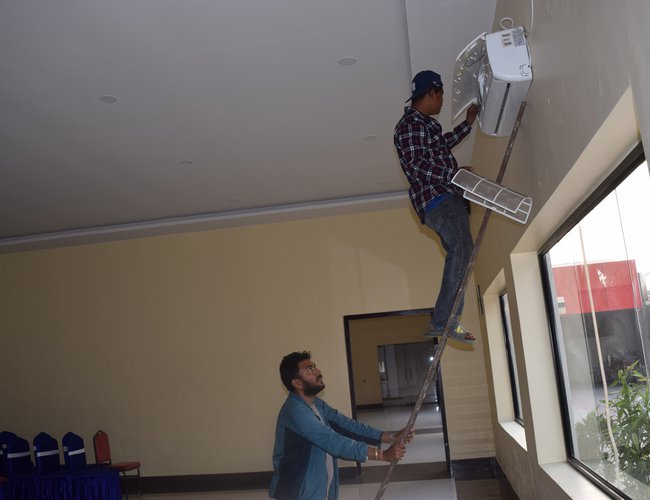
Damber Singh Thakuri, a resident of Nigale in Dhankuta Municipality ward 1, returned to Nepal two years ago with the vision of embarking on a fresh chapter in his life. Having previously worked as an unskilled laborer in Malaysia, Thakur opted to return home due to the absence of specialized vocational training opportunities that could be applied in Nepal.
Uncertain about his next steps, Thakuri stumbled upon an advertisement for Samriddhi's VST, which had been circulated by the Ward Office of Dhankuta Municipality.
Thakuri made the decision to enroll in the plumbing program, recognizing it as a skill in high demand within his locality. Upon successfully completing VST level 1, he was appointed as a plumber by the Nigale Drinking Water and Sanitation Consumer Committee in his village.
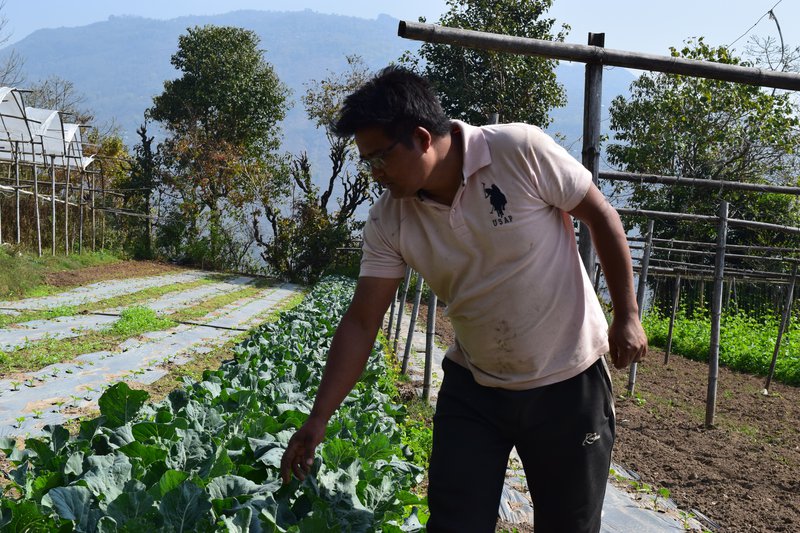
His duties involve overseeing the maintenance and operation of the drinking water supply in the vicinity. Thakuri now receives a monthly salary of Rs.15, 000.00 ($110) for around 3-4 hours of work daily. Apart from his regular income, he also earns additional money by offering household services to individual members of the consumer groups.
Thakuri expressed his gratitude towards VST for helping him reintegrate into his community and providing him with a stable monthly income. Thakuri mentioned that with the skills he acquired through Samriddhi's skill training, he is able to support his family and take care of household responsibilities.
As an employee of the consumer committee, Thakuri is constantly engaged in visiting houses and managing water distribution and maintenance work. He also travels to other regions of the municipality whenever his assistance is required.
Thakuri highlighted the high demand for plumbers in the municipality, which keeps him busy with providing his services. The payment he receives depends on the nature of the work he undertakes.
Similarly, individuals like Thakuri, Maheshwor Acharya, and Birendra Chaudhary from Balgram Tole in Itahari Municipality ward 16 have greatly benefited from the VST provided by Helvetas-Nepal under the Samriddhi Project. Acharya returned home after working for 7 years in the scorching desert of Qatar, while Chaudhary returned after spending 3 years in Saudi Arabia.
Despite their time spent abroad, both Acharya and Chaudhary faced challenges in finding suitable employment in the local market as they we
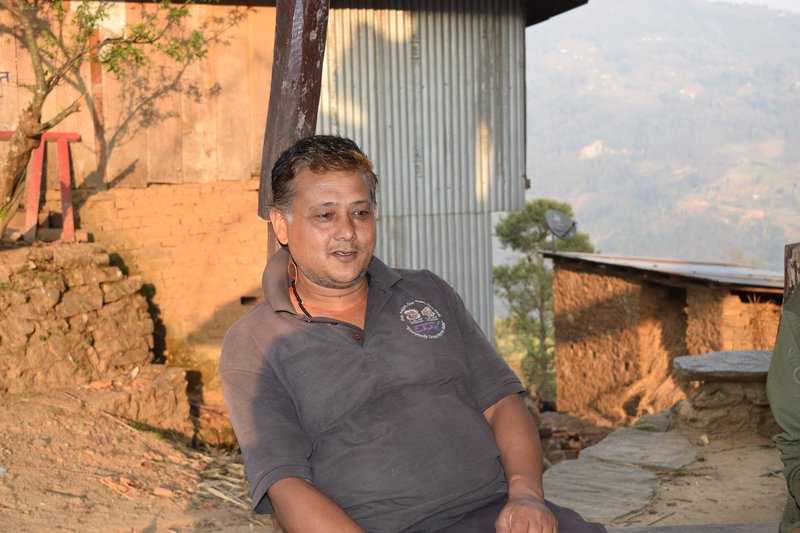
re considered unskilled workers. However, after months of searching, they were unable to secure suitable jobs.
Acharya has accumulated approximately 300,000 Nepalese Rupees ($2000) in savings, but he is unsure of how to best utilize the funds. Conversely, Chaudhari is facing a direr situation as he has no savings at all.
The announcement of the VST by the Samriddhi Project through the local ward office proved to be a lifeline for both Acharya and Chaudhary. They were both chosen for the training program and successfully completed it.
Out of 20 trainees, Acharya and Chaudhary were selected for Refrigerator/Air Condition Mechanic training through an apprenticeship model, which was implemented by a private training provider. A crucial component of the Samriddhi program is result-based financing, where the training provider is tasked with connecting employment opportunities to those who finish the course.
Following their graduation and a few months of work as maintenance assistants at a local AC/refrigerator maintenance workshop, the two decided to establish their own business. Acharya and Chaudhary, who are neighbors and returnee migrants, are now working together on their entrepreneurial venture.
As graduates with skill, Acharya and Chaudhary are now earning up to Rs.80, 000. 00 ($600) monthly by working on a call basis. Each of them is generating a net income of Rs.40, 000.00 ($300) monthly.
Acharya and Chaudhary have been moving from one location to another since early morning until evening. The demand for new AC installations and regular maintenance of refrigerators and ACs has significantly increased with the onset of the hot season. Due to the influx of orders, they are now considering hiring an assistant to help expedite their work processes.
Despite more than 20 individuals completing the training, Acharya and Chaudhary have decided to start their own businesses instead of opting for traditional employment. Some of the graduates who received training in mobile maintenance, welding, plumbing, and carpentry have chosen to pursue jobs in these fields.
Chaudhary believes that establishing their own enterprise is a more lucrative option compared to working for a monthly salary of around Rs.20, 000. They charge Rs.4000 for each AC installation, which typically takes about two hours to complete. In addition to installations, they also provide repair services for ACs, refrigerators, and washing machines at households. Currently, they are installing six to seven ACs daily and have already completed around 50 installations for the Koshi Mahakubha event alone.
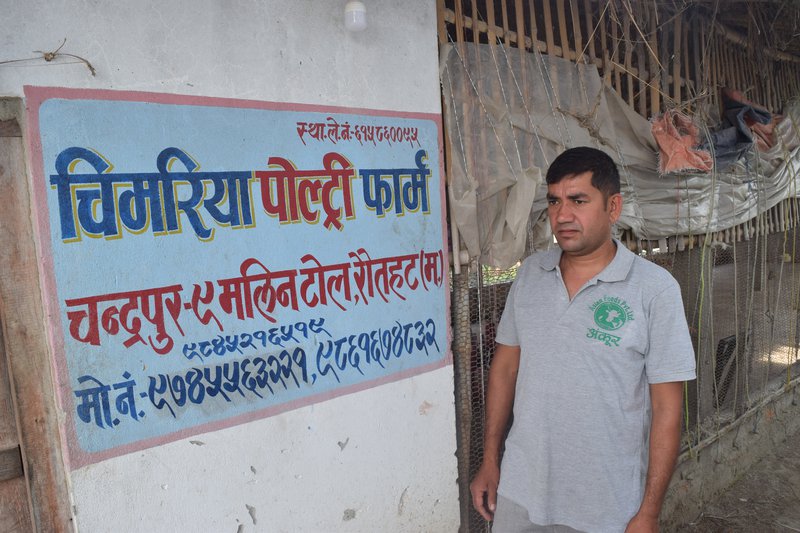
The VST program, under sub-component 1.3 (Decent Jobs), delivers high-quality skill training to targeted beneficiaries. This program follows the curricula of the Council for Technical Education and Vocational Training (CTEVT) and requires a minimum of 390 hours of training. Its main objective is to promote gainful employment.
Kalpana Kumari Katuwal, the mayor of Bharathwa Municipality in Sarlahi district, believes that Samriddhi is playing a significant role in equipping returning migrants with new skills to work in their home country. Mayor Katuwal stated, "Samriddhi is an excellent program that collaborates closely with the municipality to select and train individual.”
To ensure that the targeted group is reached, the training and employment service providers (T&Es) must fulfill the mandatory requirement.
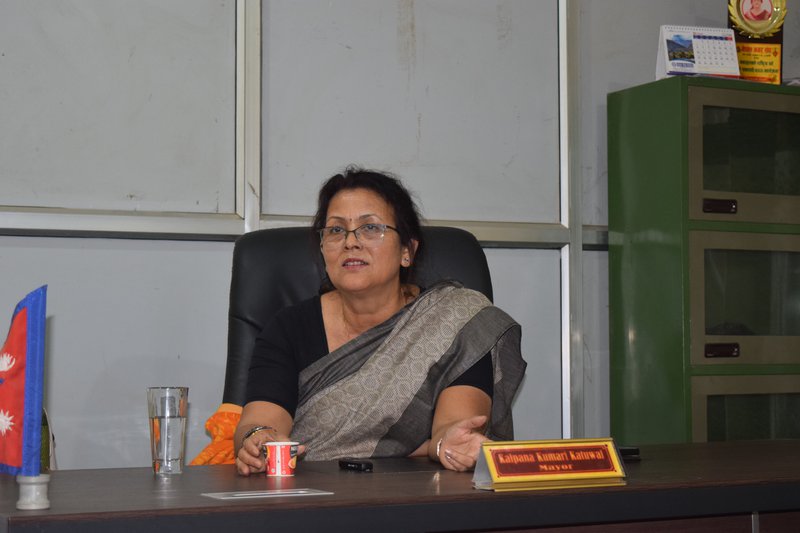
The project's key goals include establishing viable rural micro and small and medium enterprises (RMSEs) in both farming and off-farming sectors, providing sustainable sources of income to rural poor households, migrant families, and returnees.
Saroj Prasad Guragain, the project manager of Samriddhi, has stated that the private sector Training and Employment Service Providers (T&Es) have successfully implemented this model, ensuring employment opportunities. Many trainees have started their own businesses after acquiring valuable skills, while others have secured jobs with monthly salaries.

“Through my position as the lead partner of the Samriddhi Project on Decent Job, I oversee all training sessions for Samriddhi. I have noticed that the lessons learned from the project are truly impactful. Helvetas-Nepal plays a crucial role in providing Technical Assistance (TA) for the execution of subcomponent 1.3 (Decent Jobs) of the Rural Enterprises and Remittances Project (RERP), also known as SAMRIDDHI."
Sanjeev Kumar Shrestha, an expert in Value Chain & Markets and a National Consultant at the International Fund for Agricultural Development (IFAD), helds the view that the project has shown that migrant returnees can contribute to the local market by equipping them with the necessary skills at the grassroots level. He emphasized that one of the project's goals is to offer sustainable employment to returnees through the support of various viable economic activities.

As per Dr. Prabin Manandhar, the country director of Helvetas-Nepal, our research indicates that VST not only leads to wage employment but also aids in creating additional job opportunities. When occupations and trades are selected thoughtfully, vocational skills training can be a valuable tool in generating employment for unemployed youths in Nepal.
Sandip Poudel, the leader of the team responsible for overseeing Helvetas-Nepal's efforts on decent jobs, encountered various obstacles, one of which was meeting the training objectives. Nevertheless, Poudel recognizes that the progress achieved thus far is a result of the collective endeavors of our team, collaborators, and the guidance offered by the project and Helvetas-Nepal country office.

“These acquired skills also serve as inspiration for new trainees, boosting their self-confidence as they begin their own journeys,” said Posh Raj Niraula, the program officer of Helvetas-Nepal's Team in the Samriddhi Project.
The project team's unwavering dedication has positioned Samriddhi at the forefront of addressing the issues surrounding wage labor and mass migration from rural to urban areas and overseas. As it approaches the end of its current phase, the efforts of the team have made a significant impact in 16 districts across Koshi, Madhesh, and Bagmati Province. Through the collaboration of IFAD and the MICS, over 200,000 beneficiaries have been positively affected, with financial literacy programs benefiting around 300,000 individuals.
Thakuri, Acharya, and Chaudhary represent just a few examples of returnees who are reshaping society by acquiring new skills after completing vocational skills training both on and off the farm. The Samriddhi, supported by the IFAD, has showcased the effectiveness of VST and apprenticeship model in generating more job opportunities and motivating young individuals to establish their own businesses.

Keshab Poudel
Poudel is the editor of New Spotlight Magazine.
- KUL MAN GHISING: Bowing Down To The People
- Apr 13, 2025
- POLITICAL VIOLENCE: Culture of Impunity
- Apr 11, 2025
- PM OLI MEETS PM MODI: No Progress
- Apr 09, 2025
- PM OLI’S THAILAND VISIT: Flip Flop
- Apr 08, 2025
- FM Dr. Deuba’s India Visit: Mission Aborted
- Mar 26, 2025














